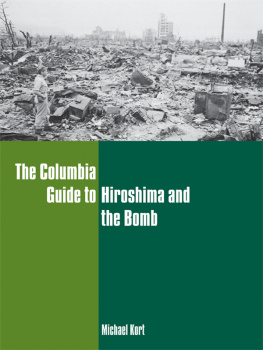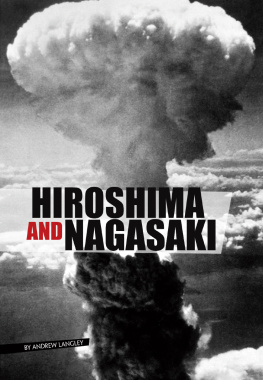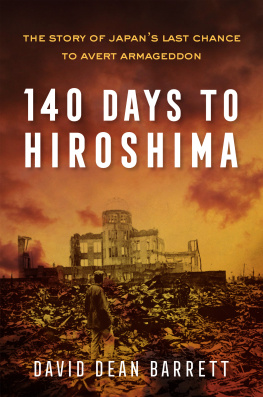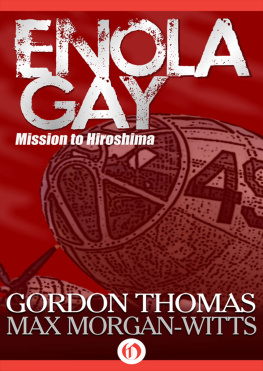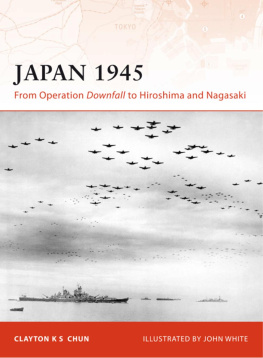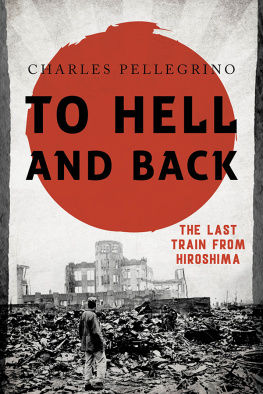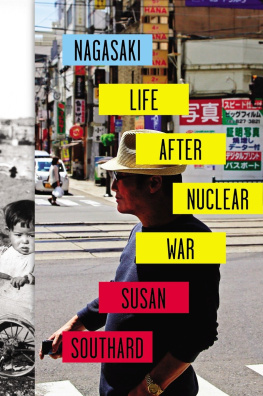The Columbia Guide to Hiroshima and the Bomb
COLUMBIA GUIDES TO AMERICAN HISTORY AND CULTURES
Columbia Guides to American History and Cultures
Michael Kort,
The Columbia Guide to the Cold War
Catherine Clinton and Christine Lunardini,
The Columbia Guide to American Women in the Nineteenth Century
David Farber and Beth Bailey, Editors,
The Columbia Guide to America in the 1960s
David L. Anderson,
The Columbia Guide to the Vietnam War
Gary Okihiro,
The Columbia Guide to Asian American History
Robert L. Harris Jr. and Rosalyn Terborg-Penn, Editors,
The Columbia Guide to African American History Since 1939

Columbia University Press New York
Publishers Since 1893
New York Chichester, West Sussex
cup.columbia.edu
Copyright 2007 Columbia University Press
All rights reserved
E-ISBN 978-0-231-52758-3
Library of Congress Cataloging-in-Publication Data
Kort, Michael, 1944
The Columbia guide to Hiroshima and the bomb / Michael Kort.
p. cm.(Columbia guides to American history and cultures)
Includes bibliographical references and index.
ISBN 13: 978-0-231-13016-5 (alk. paper)
ISBN 10: 0-231-13016-3 (alk. paper)
1. Hiroshima-shi (Japan)HistoryBombardment, 1945. 2. Hiroshima-shi (Japan)HistoryBombardment, 1945Sources. 3. Atomic bombUnited StatesHistory20th century. 4. Atomic bombUnited StatesHistory20th centurySources. 5. Atomic bombJapanHistory20th century. 6. Atomic bombJapanHistory20th centurySources. 8. Title. II. Series.
D767.25.H6K68 2007
940.542521954dc22
2006029177
A Columbia University Press E-book.
CUP would be pleased to hear about your reading experience with this e-book at .
Columbia University Press gratefully acknowledges permission to reprint from the following:
Robert J. C. Butow, Japans Decision to Surrender (Stanford University Press, 1954), Emperor Hirohitos Surrender Decision, August 10, 1945, pages 1756; Emperor Hirohitos Statement to the Imperial Conference, August 14, 1945, pages 2078.
Excerpts from To Die as a Samurai: 1 June15 August 1945 from Fading Victory: The Diary of Admiral Matome Ugaki, 19411945, translated by Masataka Chihaya, edited by Donald M. Goldstein and Katherine V. Dillon. 1991. Reprinted by permission of the University of Pittsburgh Press.
Emperor Hirohitos Soliloquy, 1946. Reprinted with permission of The Free Press, a division of Simon & Schuster Adult Publishing Group, from The Age of Hirohito: In Search of Modern Japan by Daikichi Irokawa, pp. 3133. Translated by Mikiso Hane and John L. Urda. English translation: copyright 1995 by The Free Press. Copyright 1995 by Daikichi Irokawa.
The Konoye Memorial, 14 February 1945. from John Dower, Empire and Aftermath: Yoshida Shigeru and the Japanese Experience, 18751954. Cambridge, MA: Council on East Asian Studies, Harvard University Press, 1977, 260264. Courtesy of Harvard University Press.
Henry L. Stimson Diaries: entries from May 15, May 31, June 6, June 19, June 2630, July 2, July 3, July 19, August 9, August 10 (all from 1945). Courtesy of Yale University Library.
Henry L. Stimson Papers:
Memorandum of talk with the President, June 6, 1945
Notes for the Diary, July 22, 1945
Memorandum for the President, 11 September 1945
Henry Lewis Stimson Papers. Manuscripts and Archives. Courtesy of Yale University Library.
For
Eleza and Tamara,
my wonderful and adorable daughters,
whose grandpa Jack fought in Europe
but did not have to invade Japan
I am indebted to several distinguished scholars and experts on the subject of the bombing of Hiroshima for their help in completing this book, but most of all to Richard B. Frank, who generously shared with me translations of more than a dozen important Japanese documents he had commissioned for his own work, provided an extraordinarily comprehensive and helpful critique of my manuscript, and responded with extremely detailed and insightful answers to queries on a variety of subjects; and to Dennis Giangreco, who provided constant encouragement, immediate assistance in locating a variety of resources and documents, and invaluable expertise and insight in his detailed critique of the manuscript. Robert P. Newman and Sadao Asada also read the entire manuscript and provided valuable suggestions that significantly improved it. Robert James Maddox, Robert H. Ferrell, and Larry Bland likewise kindly shared their vast expertise with me at various points during my work on this book.
In the course of gathering documents, I received vital assistance from archivists Larry McDonald and Will Mahoney at the National Archives; their help turned a relatively short visit to that daunting facility into a remarkably fruitful one. The staff of Boston Universitys Mugar Memorial Library was enormously patient and efficient in helping me track down documents and other resources, especially the interlibrary loan specialists, who refused to accept defeat when a particular item proved to be difficult to find. I also am grateful for the help I received from librarians during visits to the Boston Public Library and Harvard Universitys Lamont Library. Archivists and librarians at the Harry S. Truman Library, the George C. Marshall Historical Foundation, the Naval Historical Center, the General Douglas MacArthur Foundation, the U.S. Army Military Historical Institute, the U.S. Army Combined Arms Research Library, and the Wisconsin Historical Society all responded kindly and quickly to e-mail requests to track down and duplicate important documents, thereby saving me the considerable time and expense that would have been involved had it been necessary to visit those repositories personally.
At Columbia University Press, I was fortunate to work with two excellent editors. James Warren, an endless source of wonderful book ideas with whom I had worked on two previous volumes, including one for Columbia, conceived the idea of this project and encouraged me to undertake it. When circumstances directed his attention elsewhere, Anne Routon inherited this project, as it were, in midstream, with its author feeling a bit at sea; she immediately and reassuringly took the helm, treated the project as if she had been on board and invested in it from the start, and skillfully guided it around and past the many shoals and hazards that lie between completion of a manuscript and its publication. For the second time in as many books with Columbia, Gregory McNamee was a superb copyeditor and source of many valuable suggestions that improved the manuscript. Ronald Harris, Assistant Managing Editor at Columbia, ably and with extraordinary care oversaw the editing and proofreading of this book.
I consulted with Robert Wexelblatt and William Tilchin, my colleagues at Boston Universitys College of General Studies, on almost every aspect of this project, and their patience, good humor, and sage advice were crucial in helping me overcome numerous obstacles. I also benefited from discussing some of my ideas with colleagues at Boston Universitys International History Institute and, in June 2003, with specialists in American history from several countries at the annual Colloque International sponsored by the Observatoire de la Politique Etrangre Amricaine (OPEA) at the Sorbonne Nouvelle in Paris.
My thanks to Boston University for providing me with a sabbatical leave during the spring 2003 semester to work full-time on this project, and to Jay Corrin, my departmental chairman, and Linda Wells, Dean of the College of General Studies, for their help whenever I needed funding for travel or reproducing materials. Barbara Storella, our departmental secretary, graciously volunteered to retype a large number of photocopied documents that quite literally were almost impossible to read, while continuously radiating a wealth of good sense and good cheer.
Next page
